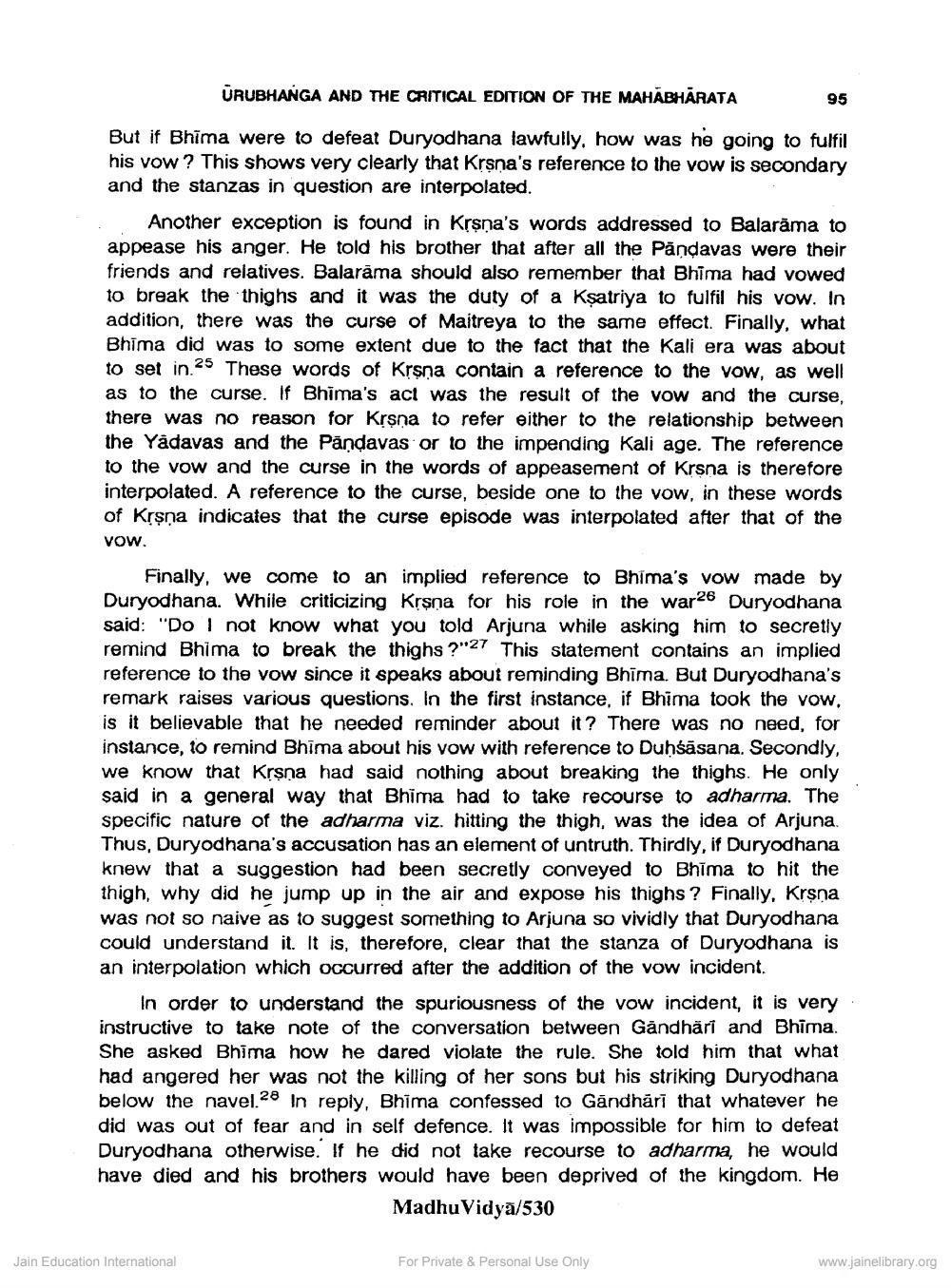________________
ŪRUBHANGA AND THE CRITICAL EDITION OF THE MAHABHARATA 95 But if Bhima were to defeat Duryodhana lawfully, how was he going to fulfil his vow? This shows very clearly that Krsna's reference to the vow is secondary and the stanzas in question are interpolated. . Another exception is found in Krsna's words addressed to Balarama to appease his anger. He told his brother that after all the Pandavas were their friends and relatives. Balarāma should also remember that Bhima had vowed to break the thighs and it was the duty of a Ksatriya to fulfil his vow. In addition, there was the curse of Maitreya to the same effect. Finally, what Bhima did was to some extent due to the fact that the Kali era was about to set in.25 These words of Krsna contain a reference to the vow, as well as to the curse. If Bhima's act was the result of the vow and the curse, there was no reason for Krsna to refer either to the relationship between the Yådavas and the Pandavas or to the impending kali age. The reference to the vow and the curse in the words of appeasement of Krsna is therefore interpolated. A reference to the curse, beside one to the vow, in these words of Krsna indicates that the curse episode was interpolated after that of the VOW.
Finally, we come to an implied reference to Bhima's vow made by Duryodhana. While criticizing Krsna for his role in the war26 Duryodhana said: "Do I not know what you told Arjuna while asking him to secretly remind Bhima to break the thighs ?"27 This statement contains an implied reference to the vow since it speaks about reminding Bhima. But Duryodhana's remark raises various questions. In the first instance, if Bhima took the vow. is it believable that he needed reminder about it? There was no need, for instance, 10 remind Bhima about his vow with reference to Duhśāsana. Secondly, we know that Krsna had said nothing about breaking the thighs. He only said in a general way that Bhima had to take recourse to adharma. The specific nature of the adharma viz. hitting the thigh, was the idea of Arjuna. Thus, Duryodhana's accusation has an element of untruth. Thirdly, if Duryodhana knew that a suggestion had been secretly conveyed to Bhima to hit the thigh, why did he jump up in the air and expose his thighs ? Finally, Krsna was not so naive as to suggest something to Arjuna so vividly that Duryodhana could understand it. It is, therefore, clear that the stanza of Duryodhana is an interpolation which occurred after the addition of the vow incident.
In order to understand the spuriousness of the vow incident, it is very instructive to take note of the conversation between Gåndhäri and Bhima. She asked Bhima how he dared violate the rule. She told him that what had angered her was not the killing of her sons but his striking Duryodhana below the navel.20 In reply, Bhima confessed to Gandhārī that whatever he did was out of fear and in self defence. It was impossible for him to defeat Duryodhana otherwise. If he did not take recourse to adharma, he would have died and his brothers would have been deprived of the kingdom. He
Madhu Vidya/530
Jain Education International
For Private & Personal Use Only
www.jainelibrary.org




